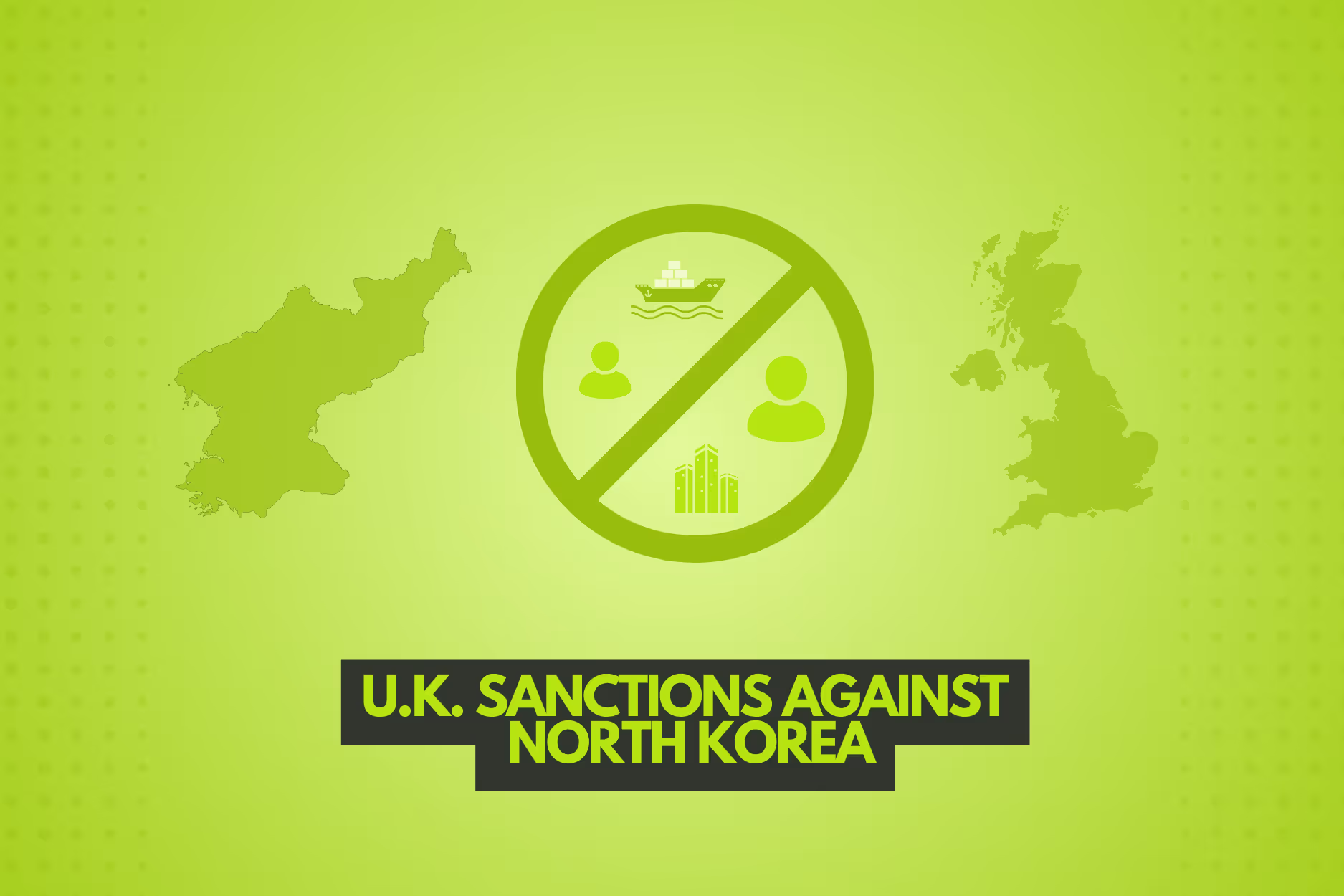
An Overview of UK Sanctions Against North Korea
The UK’s sanctions regime plays a critical role in supporting international peace and security, particularly in relation to the Democratic People's Republic of Korea (DPRK). Sanctions are imposed to restrict the DPRK’s ability to fund its weapons of mass destruction (WMD) and ballistic missile programs. UK businesses must ensure compliance with these sanctions to avoid both civil and criminal penalties. This advisory outlines key elements of the sanctions regime, recent threats posed by North Korean IT workers, and the broader implications for firms operating within the UK.
The UK’s sanctions regime plays a critical role in supporting international peace and security, particularly in relation to the Democratic People's Republic of Korea (DPRK). Sanctions are imposed to restrict the DPRK’s ability to fund its weapons of mass destruction (WMD) and ballistic missile programs.
UK businesses must ensure compliance with these sanctions to avoid both civil and criminal penalties. This advisory outlines key elements of the sanctions regime, recent threats posed by North Korean IT workers, and the broader implications for firms operating within the UK.
UK’s Sanctions Regime and Compliance
The sanctions against North Korea are part of the UK's international obligations, following UN Security Council resolutions. These measures aim to disrupt the DPRK’s ability to develop WMDs by restricting financial transactions, goods, and services that could benefit the regime. Companies dealing with North Korean individuals or entities, even indirectly, could face severe legal consequences. Compliance with sanctions involves both understanding the scope of restrictions and implementing robust internal controls to prevent accidental breaches.
The UK sanctions regime places significant emphasis on financial transactions. Any funds, goods, or services that contribute to the proliferation of weapons of mass destruction, including through indirect means such as IT services, are subject to strict controls. Engaging with entities or individuals linked to North Korea could result in both civil and criminal penalties, with individuals facing up to seven years in prison for breaches.
{{snippets-guide}}
Civil and Criminal Penalties for Non-Compliance
Sanctions enforcement in the UK operates under both civil and criminal frameworks. Civil penalties may involve monetary fines, which can be levied without proving that the person or entity knew about the breach. On the other hand, criminal sanctions require a higher threshold of proof but can result in harsher penalties, including significant prison sentences for those convicted of knowingly or recklessly breaching sanctions. This dual approach ensures both intentional and negligent violations are met with appropriate consequences.
For businesses, the stakes are high. Even an unintentional breach could lead to severe financial penalties. The role of the Office of Financial Sanctions Implementation (OFSI) is to guide companies on best practices for compliance, but the onus remains on businesses to ensure they are not inadvertently supporting sanctioned activities, such as through indirect dealings with DPRK IT workers.
Reporting Obligations
UK firms must report any suspected breaches of sanctions to OFSI, including dealings with North Korean IT workers. Firms should also file Suspicious Activity Reports (SARs) with the National Crime Agency if there is suspicion of money laundering or terrorist financing linked to North Korea. Proper reporting mechanisms help UK authorities track and mitigate risks associated with sanction breaches and prevent further funding of DPRK’s illicit activities.
Broader Implications for UK Businesses
The UK sanctions regime has broad implications for businesses across multiple sectors, especially those in finance, technology, and professional services. Even companies without direct dealings with North Korean entities must be aware of potential indirect exposure, particularly when dealing with third-party contractors or freelancers. As outlined in the advisory, North Korean operatives use sophisticated methods, including fake identities and remote access technologies, to infiltrate foreign businesses.
To mitigate risks, businesses must strengthen internal due diligence processes, especially when hiring remote workers or engaging with international firms. This includes verifying the identity and location of freelancers, monitoring financial transactions for red flags, and ensuring compliance with the sanctions regime by avoiding business with high-risk individuals or entities.
DPRK IT Workers: A Specific Threat
It is almost certain that DPRK IT workers are fraudulently gaining employment with UK firms by posing as third-country nationals. These workers are highly skilled, engaging in software development, IT support, and graphic design, among other fields. By obscuring their true identities and utilising digital platforms, they generate revenue for the DPRK regime, contributing directly to its WMD programs. Companies must remain vigilant, conducting thorough due diligence and reporting any suspicious activity to the appropriate authorities.
Mitigation and Due Diligence
OFSI advises UK firms to implement several mitigation measures to avoid inadvertently supporting the DPRK regime. These include conducting thorough background checks on prospective employees, monitoring for inconsistencies in identification, and avoiding payment in cryptocurrencies, which are harder to trace and may facilitate sanction evasion. Additionally, businesses should ensure that IT workers are not granted privileged access to sensitive data, which could be exploited by North Korean cyber actors for malicious purposes.
{{snippets-case}}
Conclusion
The UK sanctions regime serves as a vital tool in curbing the proliferation of WMDs and other threats posed by rogue states like North Korea. While the threat from DPRK IT workers is specific, the broader responsibility for businesses is to ensure compliance with all aspects of the sanctions framework. By adhering to OFSI’s guidelines, reporting suspicious activity, and implementing rigorous due diligence, UK firms can avoid the severe penalties associated with sanctions breaches and contribute to the global effort to curtail the DPRK’s illicit activities.
sanctions.io is a highly reliable and cost-effective solution for real-time sanctions screening. AI-powered and with an enterprise-grade API with 99.99% uptime are reasons why customers globally trust us with their compliance efforts and sanctions screening needs.
To learn more about how our sanctions, PEP, and criminal watchlist screening service can support your organisation's compliance program: Book a free Discovery Call.
We also encourage you to take advantage of our free 7-day trial to get started with your sanctions and AML screening (no credit card is required).


